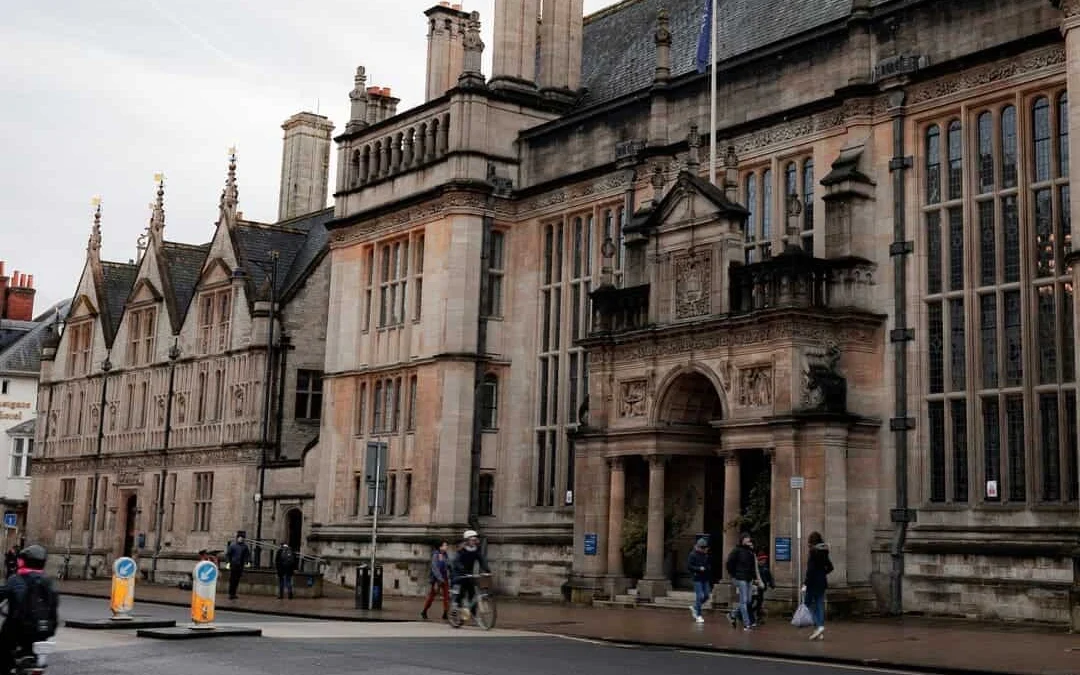Table of Contents
Ireland is a nation that speaks English. The curriculum for practicing medicine is valid for five years. As the language of contact is English in Ireland, during their internship and even during real clinical practice, students can communicate easily with their patients. Ireland’s medical degree is recognized around the world, including the United States, Canada, Europe, India, and other Asian nations. In Ireland, students pursue MBBS as they recently made strong investments in education. For the most part, all medical universities in Ireland have been ranked among the top 700 universities, some of which are recognized by MCI & WHO. With an affordable fee structure and a high standard of education, they provide foreign students with education. Here is what you need to know about pursuing medical studies in Ireland.
Reasons for pursuing medical studies in Ireland
Here is a list of the best reasons to pursue a medical degree in Ireland :-
- Universities in Ireland offer world-class education, and Ireland’s university degrees are internationally recognized.
- Both colleges and medical schools have English-language medical education.
- Students have the chance at a very early level of their MBBS course program to apply their expertise logically.
- At medical universities in Ireland, students get outstanding internship opportunities.
- Irish universities are among the elite 1 percent of academic institutions.
- Affordable fee structure
- In Ireland, there are MCI/WHO approved medical colleges
- The process of admission is quite straightforward.
- 6 years is the length of the MBBS course.
- Ireland’s cost of living is affordable.
- WHO, MCI, GMC, IMED, and USMLE are recognised by top universities.
- Your degree will be recognised worldwide.
- Highly trained departments that use new teaching techniques and technologies.
- You can easily find proper Indian hostels & Indian foods (Veg & Non-Veg).
- If you’re an Indian, find Indian wardens with full protection for Boy & Girls hostels separately.
- Ragging free environment.
- Flight costs are very cheap.
- More than 10000 Indian students now study in Ireland at the top universities.
About the Application Process of pursuing medical studies in Ireland
The Complete Admissions Office handles all Irish medical school applications (CAO). An online application costs 40 euros, but if you apply early, there is a discount of 25 euros. You have to register with CAO to learn medicine in Ireland, which involves filling out your personal information, paying the registration fee, and generating a password. Don’t forget that this qualifies as a ‘closed course if you qualify for Medicine, which means you will need to apply to CAO early, so double-check the date in advance of your applications.
You will get your CAO number at the end of your registration. You can then type your credentials and school information after this. You will still need to post A4 photocopies of your exam credentials to CAO (not originals, since these will not be returned) you will get guidance on how to do this when you complete your submission. Then you can pick your options by signing into ‘My Application’ you can choose ‘Add Level 8 course options’ or ‘Add Level 7/6 course options’. For each list, you can then pick ten-course options-the decisions you make on one list will not affect the other. All courses in Medicine are graded as Level 8.
List of Universities to Choose from
In Ireland, there are presently five colleges offering medical programs. So here is a comprehensive list of medical colleges in Ireland:
- Trinity College Dublin
- University College Cork
- National University of Ireland, Galway
- Royal College of Surgeons in Ireland
- University College Dublin
- University of Limerick (Graduate Entry)
At medical colleges in Ireland, you can also learn a variety of other Allied Health topics, such as dentistry, physiotherapy, or radiography.
Entry Requirements
Both Irish medical schools require students pursuing medical studies in Ireland to take the Health Professions Admissions Test (HPAT) and have at least 480 marks, which are translated from the grades of the Leaving Certificate.
Syllabus for MBBS in Ireland
The syllabus for pursuing a medical degree in Ireland is as follows:
- For the 1st year, the topics contain Gastrointestinal, Nutritional, and Metabolic genetics, Human biology, Cardiovascular Biology, Respiratory Biology, and Metabolism.
- The topics for the 2nd year consist of Medical Pharmacology, Disease Mechanisms, Neuroscience, Bone Metabolism, Homeostasis, and Related Anatomy Renal Mechanisms.
- The topics for the 3rd year consist of: Health care, Health Research, and Practice III, IV and V, Epidemiology and Evidence Oriented, Fundamentals of Therapy, Disease Manifestations.
- The topics for the medicine course in the 4th year are Psychiatry, Behavioral Medicine, Reproduction, Childbirth, Wellness and Development for Children, Adult Disease Concepts, Forensic Medicine, and the Court of the Coroner.
- For the 5th year, the topics contain Principles and Practice of Surgery, Internal Medicine and General Practice Principles and Practice, Paediatrics and Infant Welfare Principles and Practice, Obstetrics and Gynaecology Principles and Practice, Medicine Science and Professionalism II.
How much does it cost?
How much money does a medical school in Ireland cost? The good news is that your tuition fees will be paid by the Higher Education Authority of Ireland to your university. This Free Fees Program covers all students who have been staying in the EU for three years, who are studying for the first time at the undergraduate level, and who are studying for a period of two years on a full-time basis. However, this may not apply to receiving a waiver from paying fees of medical colleges in Ireland for Indian students if they do not meet the above criteria.
Many colleges will, however, require you to pay an annual Student Contribution Charge, which will vary from course to course, so make sure you review this on the webpage of the university, but the fee will be up to €3,000.
In Ireland, the primary provider of financial assistance is the Student Grant. You may also state this on the CAO form if you are eligible for this award, and the CAO will then give your identity information to the grant authority, Student Universal Support Ireland (SUSI). Although CAO will submit this information, do not forget that you will also need to register with SUSI and complete an online application process to qualify for this grant to assist with your studies.
Student living costs in Ireland
The cost of living in Ireland is marginally higher than the European average, and you can expect to spend between EUR 550 and EUR 1,000 per month while paying the medical school in Ireland cost of education.
Normal living costs in Irish cities (including the cost of accommodation):
Dublin: €1,100 – 1,800/month
Cork: €860 – 1,400/month
Galway and other smaller towns: €800 – 1,100/month
Accommodation in student residence halls is provided by higher education institutions and typically costs more than the European average of €200-300. Finding a location is always difficult because the number of places is small, and the demand is high.
You can rent/share an apartment or choose to live with an Irish family, apart from residence halls.
The average student accommodation prices in Ireland are:
Students who live alone: €400 – 900/month
Student living with partner/mates: €450 – 550/month
Campus Students: €300 – 650/month
Certain accommodation-related costs:
Utilities: Around €30 – 50/month
Internet: Up to €60/month
Studying medicine in Ireland for uk students? Are you looking for accommodations near your university? Get the accommodation of your dreams! Check out UniAcco.
Costs of Food
The monthly average food costs are not high if you are pursuing medical studies in Ireland. You’re going to spend about €250-350 a month shopping for groceries. In supermarkets such as Aldi, Lidl, Tesco, Dunnes or Superquinn, cheaper food items can be found. You can also dine and pay €15 in a small restaurant or enjoy a three-course meal for two for €55 in a mid-range restaurant.
Costs for Transportation
Students will benefit from transportation discounts if they fly across the country using the Student Leap Card or the Bus Éireann services. In Ireland, about 27 percent of students use public transport, and a monthly pass with a special student discount is around €50 to 55 per month.
The bicycle, selected by 38 percent of the students, is the most common mode of transport. For about €20/day, you can hire a bicycle to get around the city.
Extra costs
Other costs that you need to cover during your studies are:
Books and other materials for study: €75/month
Social/entertainment activities: €60 – 100/month
Health coverage: €45/month
Scholarships and financial support in Ireland
International students in Ireland have hundreds of scholarships and support programmes at their disposal. Some of them are provided by the government of Ireland, some by universities, and some by private organisations.
Every institution is free to lay down the requirements for programmes of financial aid. That’s why certain grants are only open to students from developing countries, or to students with exceptional academic success, and so on.
FAQs
1. How much does it cost to study MBBS in Ireland?
The average cost to study MBBS in Ireland is €46,000 per year. However, the cost can vary depending on the university and the type of accommodation you choose.
2. Can Indian students study MBBS in Ireland?
Yes, Indian students can study MBBS in Ireland. However, they must meet the following eligibility requirements: Must have completed their 12th grade with a minimum of 50% in Physics, Chemistry, and Biology, valid IELTS or TOEFL score and must pass the HPAT (Health Professions Admission Test).
3. Can international students study medicine in Ireland?
Yes, international students can study medicine in Ireland. However, they must meet the same eligibility requirements as Irish students.
4. Is NEET required for MBBS in Ireland?
No, NEET is not required for MBBS in Ireland. However, some universities may recommend that international students take the NEET exam to assess their preparedness for the medical program.










0 Comments